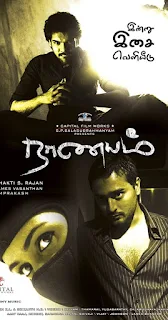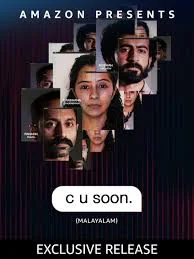Three monkeys (Üç Maymun, Turkish; 2008)
Director: Nuri Bilge Ceylan
The original three wise monkeys, often seen in pop culture, probably originated in Buddhist culture and reached Japan through Buddhist missionaries. The monkeys embody the principle of "see no evil, hear no evil, speak no evil." They also have names: Mizaru, Kikazaru, and Iwazaru.
 MK Gandhi received a token of the three monkeys from a Japanese well-wisher. A larger representation is displayed in his memorial in Ahmedabad, Sabarmati Ashram. Gandhi's moniker, which spirals around non-violence, passive resistance, and satyagraha, syncs well with what these monkeys are trying to say. Are they?
MK Gandhi received a token of the three monkeys from a Japanese well-wisher. A larger representation is displayed in his memorial in Ahmedabad, Sabarmati Ashram. Gandhi's moniker, which spirals around non-violence, passive resistance, and satyagraha, syncs well with what these monkeys are trying to say. Are they?
When we say we do not want to see, hear, or speak evil, do we mean we want to view and consume things that are good, only good? Nature, in its all primitive form, can be an evil creature. The wrath of Nature has no boundaries. The natural forces of Nature bring us blessings in their own way, but they care for two hoots for people and live beings in their path. One good thing may be devastating the other. A freak thunderstorm in the middle of spring is a catastrophic event to rice harvesters and a nightmare to fishermen, but it is a boon to others. Those who lose out in this terrestrial sorcery are mere collateral damage.
Fellow human beings can be equally evil, maybe for survival, place or dominance. It is all around us. Are we just going to see through the evil, shut our ears from injustices and not speak against tyranny? Just look away? Run away from it all to live in a world of make-believe world of no evil?
Or does it mean that we should strive to create a world where there is no evil if anyone turns around to see, listen, smell or whatnot? For that, we should 'think evil'. Left to their own devices, I do not think anyone will want to do anything evil. It is the circumstance and desperation that leads him to this. Above all, one should have the wisdom to identify and refrain from evil. Then, there will be nothing to see, hear or speak. In the Analects of Confucius, a fourth monkey, Sezaru, propagates 'do no evil'. It is seen covering its genitals with its hands.
 |
Another version of 3 monkeys
"Hear, see, and speak out loud
for what you stand for." |
I discovered this Turkish director who has been telling simple stories with picturesque cinematography and thought-provoking themes. This is one of them.
An up-and-coming politician accidentally hits someone with his car while driving in an isolated countryside late one dark night. The victim dies on the spot. He asks his driver to take the blame, as admitting his crime would jeopardise the politician's career. The driver and his family are promised a fat remuneration for his sacrifice. The driver goes to jail for a year.
The monthly money comes on time, but the driver's wife and the politician start an affair. Somehow, the driver's late teenage son discovers their clandestine activity. The son is now in a dilemma. Should he just let it pass or punish the politician with malice. Is this way he pays back the man who carried his blame?
Meanwhile, the politician loses his election. The driver completes his sentence and is released. Even though the politician wants to end their affair, the driver's wife is helplessly in love with her lover. The three monkeys are in a fix: the driver senses something is wrong, the politician cannot get the monkey off his back, and the son is angry. Meanwhile, the politician is murdered.
The driver comes to know from the police that his wife is having an affair with the politician. The son confesses to the driver that he killed the politician. Just as his boss did, the driver got a poor fakir from the mosque to be the fall guy and take the blame for the murder.
We can talk all we want about the three wise monkeys, but the present world seems to warrant the fourth monkey. Sezaru, the fourth monkey, has been looking the other way for so long. It is about time Sezaru stops the violence that embodies our world. With such laxity and laissez-faire attitude on sexual behaviours these days, is it not necessary for Sezaru to be shown with his hands covering his genitalia or covering his nose to denote the stench that is enveloping our civilisation?
 MK Gandhi received a token of the three monkeys from a Japanese well-wisher. A larger representation is displayed in his memorial in Ahmedabad, Sabarmati Ashram. Gandhi's moniker, which spirals around non-violence, passive resistance, and satyagraha, syncs well with what these monkeys are trying to say. Are they?
MK Gandhi received a token of the three monkeys from a Japanese well-wisher. A larger representation is displayed in his memorial in Ahmedabad, Sabarmati Ashram. Gandhi's moniker, which spirals around non-violence, passive resistance, and satyagraha, syncs well with what these monkeys are trying to say. Are they?




























